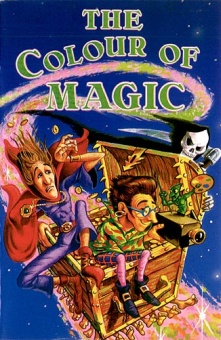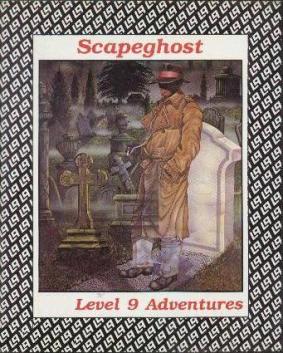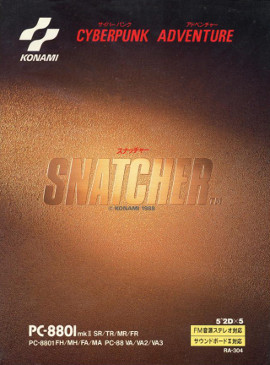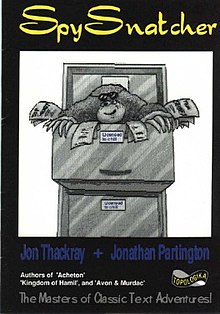
The Amstrad CPC is a series of 8-bit home computers produced by Amstrad between 1984 and 1990. It was designed to compete in the mid-1980s home computer market dominated by the Commodore 64 and the ZX Spectrum, where it successfully established itself primarily in the United Kingdom, France, Spain, and the German-speaking parts of Europe.

Amstrad was a British consumer electronics company, founded in 1968 by Alan Sugar. During the 1980s, the company was known for its home computers beginning with the Amstrad CPC and later also the ZX Spectrum range after the Sinclair deal, which led it to have a substantial share of the PC market in Britain. In the following decade it shifted focus towards communication technologies, and its main business during the 2000s was the manufacture of satellite television set-top boxes for Sky, which Amstrad had started in 1989 as the then sole supplier of the emerging Sky TV service.

The Amstrad PCW series is a range of personal computers produced by British company Amstrad from 1985 to 1998, and also sold under licence in Europe as the "Joyce" by the German electronics company Schneider in the early years of the series' life. The PCW, short for Personal Computer Word-processor, was targeted at the word processing and home office markets. When it was launched the cost of a PCW system was under 25% of the cost of almost all IBM-compatible PC systems in the UK, and as a result the machine was very popular both in the UK and in Europe, persuading many technophobes to venture into using computers. The series is reported to have sold 8 million units. However the last two models, introduced in the mid-1990s, were commercial failures, being squeezed out of the market by the falling prices, greater capabilities and wider range of software for IBM-compatible PCs.

Dizzy is a series of video games, created by the Oliver Twins and published by Codemasters. It was one of the most successful British video game franchises of the late 1980s and early 1990s. Originally created for the ZX Spectrum and Amstrad CPC, the series appeared on multiple home computer and video game console formats, with over a dozen games being published between 1987 and 1992.

LocoScript is a word processing software package created by Locomotive Software and first released with the Amstrad PCW, a personal computer launched in 1985. Early versions of LocoScript were noted for combining a wide range of facilities with outstanding ease of use. This and the low price of the hardware made it one of the best-selling word processors of the late 1980s. Four major versions of LocoScript were published for the PCW, and two for IBM-compatible PCs running MS-DOS. LocoScript's market share didn't expand with the PC versions, which were not released until after Windows had become the dominant PC operating system.

Level 9 was a British developer of computer software, active between 1981 and 1991. Founded by Mike, Nicholas and Pete Austin, the company produced software for the BBC Micro, Nascom, ZX Spectrum, Commodore 64, Oric, Atari 8-bit computers, Camputers Lynx, RML 380Z, Amstrad CPC, MSX, Amiga, Apple II, Memotech MTX, and Enterprise platforms and is best known for its successful text adventure games until a general decline in the text adventure market forced their closure in June 1991.

The Amstrad NC100 Notepad was an A4-size, portable Z80-based notebook computer, released by Amstrad in July 1992. It featured 64 KB of RAM, the Protext word processor, various organiser-like facilities, a simple calculator, and a version of the BBC BASIC interpreter.

The Colour of Magic is a text adventure game developed by Delta 4 and published by Piranha Software, released in 1986. It was released for the ZX Spectrum, Amstrad CPC, and Commodore 64 computers. It is the first Discworld computer game and so far the only one adapted directly from one of the novels, and follows the plot of the book closely.

Sky+ is a discontinued personal video recorder (PVR) and subscription service from the satellite television provider Sky in the UK and Ireland. Launched in September 2001, it allows customers to record, pause and instantly rewind live TV. The system performs these functions using an internal hard drive inside the Sky+ set top box, an upgrade over the standard Digibox.
AMSDOS is a disk operating system for the 8-bit Amstrad CPC Computer. The name is a contraction of Amstrad Disk Operating System.

Samurai Warrior: The Battles of Usagi Yojimbo is a video game released for the Commodore 64, ZX Spectrum and Amstrad CPC platforms in 1988, by the now-defunct label Firebird. It is based on the comic book Usagi Yojimbo, which featured the adventures of an anthropomorphic samurai rabbit. The game closely follows some of the themes of the comic. The package artwork comes from the cover of the comic book Anything Goes #6.

Shin Onigashima is a 1987 adventure game developed by Nintendo R&D4 and Pax Softnica. It was released by Nintendo on two disk cards for the Famicom Disk System. Shin Onigashima was produced by Shigeru Miyamoto with music by Koji Kondo. The game is the first in the Famicom Mukashibanashi series and was followed by Yūyūki (1989).

Scapeghost is a text adventure published by Level 9 Computing in 1989. It was the last text adventure game released by the company.

Frankenstein is a text adventure game released by CRL in 1987 for the Commodore 64, Amstrad CPC, and ZX Spectrum home computers. The game is based on the 1818 novel Frankenstein; or, The Modern Prometheus by Mary Shelley.

Aventuras AD was a Spanish video game developer, one of the most popular in Spain during the Golden Era of Spanish Software in the 1980s, specialized in text adventure games. It was created as a seal split from Dinamic Software in 1987. They popularized the genre of aventura conversacional, and they would release games until 1992, when they, like the rest of the Spanish companies of the time, had to close on bankruptcy, unable to switch in time to 16 bit development. They would release their titles mainly for ZX Spectrum, Amstrad CPC, Commodore 64, MSX, IBM PC, Amstrad PCW, and in the last years also Atari ST and Amiga.

Spycat: An Interactive Exposé of M.I.41⁄2 is an action-adventure game for the BBC Micro and Acorn Electron, written by Peter Scott and published by Superior Software in 1988. The game is a parody of the scandal surrounding the Spycatcher book.

Snatcher is a cyberpunk graphic adventure game developed and published by Konami. It was written and designed by Hideo Kojima and first released in 1988 for the PC-8801 and MSX2 in Japan. Snatcher is set in a future East Asian metropolis where humanoid robots dubbed "Snatchers" have been discovered killing humans and replacing them in society. The game follows Gillian Seed, an amnesiac who joins an anti-Snatcher agency in search of his past. Gameplay takes place primarily through a menu-based interface through which the player can choose to examine items, search rooms, speak to characters, explore a semi-open world, and perform other actions.

Microsoft Adventure is a interactive fiction game published in 1979 by Microsoft for the TRS-80 and Apple II, then released in 1981 by IBM for the IBM PC. It is based on the PDP-10 mainframe game Colossal Cave Adventure. It was programmed for Microsoft by Gordon Letwin of Softwin Associates.

Yes, Prime Minister is a 1987 adventure game based on the television series of the same name. It was developed by Oxford Digital Enterprises and published by Mosaic Publishing. It was released in Europe for Amstrad CPC, BBC Micro, Commodore 64, DOS, and ZX Spectrum. Critics found it a faithful adaptation of the television series, but remarked on its high price, short length, and lack of long-term appeal.


















